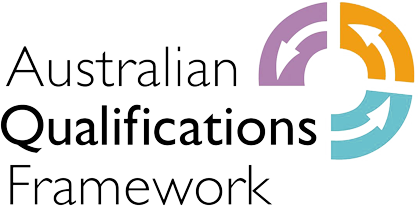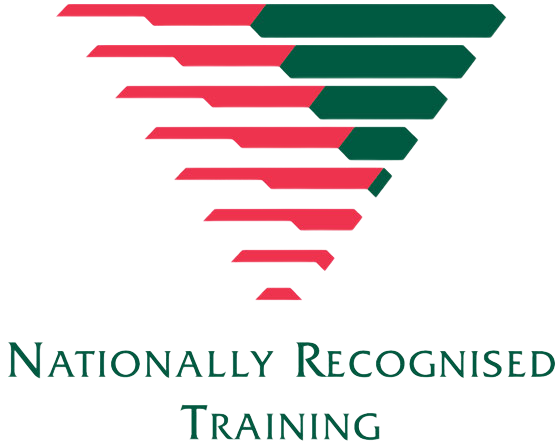Everything You Need to Know:
Registering a construction company in Australia involves several steps to ensure compliance with legal and industry requirements.
This guide outlines the process to help you get started, helping you to set up your business for success in the following ways:
Build a Strong Foundation: You’ll establish a business structure that supports long-term growth and financial stability, setting your company up for lasting success in the construction industry.
Ensure Legal and Regulatory Compliance: You’ll cover all the necessary steps to meet legal and industry requirements, protecting your business from potential legal issues and ensuring smooth operations.
Simplify Your Business Launch: You’ll navigate the complexities of starting a construction business with ease, allowing you to focus on growing your business instead of getting bogged down by administrative tasks.

1. Decide on your Business Structure
Choose the business structure that best aligns with your needs, whether it’s a sole trader, partnership, company, or trust. This decision will have significant implications for your business’s operations, liability, taxation, and legal obligations. It’s crucial to consider protective measures from the outset, such as asset protection and personal liability limits.
Consulting with an accountant or lawyer can provide valuable insights into the advantages and disadvantages of each structure, helping you make an informed decision that supports your long-term business goals and minimises potential risks.
SOLE TRADER
- Ownership: Owned and operated by one individual.
- Liability: Owner has unlimited personal liability for business debts.
- Taxation: Income is taxed at the owner’s personal income tax rate.
- Control: Full control by the owner.
- Compliance: Minimal legal and administrative requirements.
PARTNERSHIP
- Ownership: Owned by two or more individuals or entities.
- Liability: Partners have unlimited personal liability, shared equally unless stated otherwise.
- Taxation: Income is divided among partners and taxed at their personal income tax rates.
- Control: Shared control among partners based on the partnership agreement.
- Compliance: Moderate legal and administrative requirements, partnership agreement recommended.
COMPANY
- Ownership: Owned by shareholders.
- Liability: Limited to the value of shares owned by shareholders.
- Taxation: Taxed as a separate legal entity, company tax rates apply.
- Control: Managed by directors, governed by a board of directors.
- Compliance: High legal and administrative requirements, including registration and reporting obligations.
TRUST
- Ownership: Assets held by a trustee for the benefit of beneficiaries.
- Liability: Trustee has legal liability, but it can be limited depending on the type of trust.
- Taxation: Income is generally distributed to beneficiaries, who are taxed at their personal rates.
- Control: Managed by the trustee according to the trust deed.
- Compliance: Complex legal structure with moderate to high administrative requirements.
2. Choose a Business Name
- Select a Unique and Memorable Name: Choose a distinctive and memorable name that accurately reflects your brand and business identity. The name should resonate with your target audience and be easy to pronounce, spell, and recall.
- Check Availability: Confirm hat your chosen name is available by conducting a thorough search through the Australian Securities and Investments Commission (ASIC) database. Also, check for the availability of the name on relevant domain extensions and social media platforms to ensure consistency across all channels.
- Ensure Legal Compliance: Verify that the name meets all legal requirements, including not infringing on existing trademarks or registered business names. It’s also wise to consult with a legal professional to ensure that your chosen name does not conflict with intellectual property laws or other regulations. This step helps prevent potential legal disputes and ensures that your business name is fully protected.
3. Secure a Domain Name
Check Domain Availability: Verify that a domain name matching your business name is available for registration. A domain that closely aligns with your business name is crucial for brand consistency and helps potential customers easily find your business online. Consider checking the availability of multiple domain extensions (e.g., .com, .com.au) to ensure broad protection and reach.
Register Your Domain: Once availability is confirmed, promptly register the domain name to secure your online presence and protect your brand. Early registration prevents others from claiming the name, allowing you to build a strong, cohesive online identity. Additionally, consider registering alternative spellings or variations of your domain to safeguard your brand against competitors and potential cybersquatters
Here are links to the most popular domain name sellers:

4. Register for an ABN and GST
- Apply for an ABN: Obtain an Australian Business Number (ABN) through the Australian Business Register (ABR). The ABN is essential for identifying your business to government agencies, facilitating tax obligations, and conducting transactions with other businesses.
- Register for GST: If your annual turnover is expected to exceed $75,000, register for Goods and Services Tax (GST) through the Australian Taxation Office (ATO). Registering for GST is crucial for compliance, allowing you to charge and claim GST on business transactions, and avoid penalties.
5. Register Your Company with the ASIC
- Submit Form 201: Fill out and submit Form 201 to register your company with the Australian Securities and Investments Commission (ASIC). This form includes key details about your company, like its name, registered office, and directors.
- Set Up Governance: Choose how your company will be governed by either creating a custom constitution or using ASIC’s standard replaceable rules. This will guide how your company operates, including director roles and shareholder rights.
- Appoint Directors and Secretaries: Ensure all directors and secretaries meet legal requirements and include their details in the registration.
- Allocate Shares: Decide on the share structure, including the types and number of shares each shareholder will receive.
- Pay Registration Fees: Complete the registration by paying the required fees to ASIC. Once registered, you’ll receive a Certificate of Incorporation and an Australian Company Number (ACN).
6. Obtain Construction Industry Licenses
- Get a Builder’s License: Apply for a builder’s license through the relevant state or territory authority. This is essential for legally operating as a builder. (Contact us about our range of licensing application services).
- Obtain a Site Supervisor License: If your role involves overseeing construction work, apply for a site supervisor license. This license is required to manage and supervise building projects and ensure compliance with safety and building standards. (Contact us about our range of licensing application services).
- Acquire a White Card: Ensure all workers have a Construction Induction Card (White Card) to access construction sites safely and legally.
- Consider Additional Licenses: Depending on your business needs, you may also require other licenses, such as a project management license or specialist contractor licenses. These may vary by state and the nature of your work.
- Maintain Compliance: Keep all licenses up to date and stay informed about any changes in regulations to ensure ongoing compliance.
7. Arrange Insurance Coverage
Secure Essential Insurance: Obtain the necessary insurance policies to protect your business, including:
- Public Liability Insurance: Covers legal costs and damages if your business is held responsible for injury or property damage to third parties.
- Workers’ Compensation Insurance: Mandatory coverage that provides financial protection for your employees in case of workplace injuries or illnesses.
- Professional Indemnity Insurance: Protects your business against claims of negligence or breach of duty arising from professional services or advice you provide.
Assess Additional Coverage Needs: Depending on the scope of your operations, consider additional insurance options such as construction all-risk insurance, vehicle insurance for company-owned vehicles, and business interruption insurance to cover unexpected disruptions.
Review and Update Regularly: Regularly review your insurance policies to ensure they remain adequate as your business grows and evolves and adjust coverage as necessary to stay fully protected.

8. Hire a Competent Accountant and Establish Robust Financial Management
Engage an Industry-Specific Accountant: Seek out an accountant who has expertise in the construction industry. They should understand the unique financial challenges and regulations associated with construction businesses, ensuring that your financial operations are handled efficiently and accurately.
Set Up an Accounting System: Work with your accountant to implement a reliable accounting system that can generate accurate invoices, quotes, and manage your financial transactions. This system should streamline processes such as tracking expenses, managing payroll, and monitoring cash flow.
Establish Trading Terms: Collaborate with your accountant to develop clear and effective trading terms for your clients. These terms should include payment schedules, late fees, and any other conditions to ensure timely payments and reduce financial risk.
Comprehensive Financial Management: Ensure your accountant is capable of handling all aspects of financial management, including:
- Bookkeeping: Accurate and up-to-date records of all financial transactions.
- Financial Reporting: Regular preparation of profit and loss statements, balance sheets, and cash flow forecasts to provide a clear picture of your business’s financial health.
- Tax Planning and Compliance: Strategic tax planning to optimise your tax position while ensuring compliance with all relevant tax laws and regulations.
- Budgeting and Forecasting: Creating detailed budgets and financial forecasts to guide business decisions and help you plan for future growth.
Ongoing Financial Review: Regularly review your financial reports with your accountant to identify areas for improvement, manage expenses, and ensure your business remains profitable and financially stable as it grows.
9. Ensure Compliance with Tax Obligations
Meeting your tax obligations is critical to the long-term success and stability of your business. Failure to comply can lead to severe financial penalties and could jeopardise your business.
- Register for PAYG Withholding: If you have employees, you must register for Pay As You Go (PAYG) withholding. This system requires you to withhold tax from your employees’ wages and remit it to the Australian Taxation Office (ATO). Accurate and timely PAYG withholding is essential to avoid penalties and maintain compliance.
- Superannuation Compliance: Register for superannuation and ensure you make the required contributions for your employees. Superannuation is mandatory and must be calculated and paid according to the current legislation. Failure to meet your superannuation obligations can result in significant fines and damage to your business’s reputation.
- GST and BAS Reporting: If your business is registered for Goods and Services Tax (GST), you will need to lodge Business Activity Statements (BAS) regularly. This involves reporting and paying GST, as well as other tax obligations such as PAYG withholding and income tax installments.
- Income Tax Compliance: Ensure that your business meets all income tax obligations. This includes accurate record-keeping, timely submission of tax returns, and payment of any due taxes. Your accountant should assist in managing these obligations and planning tax strategies to optimise your tax position.
- Ongoing Tax Management: Regularly review your tax compliance with your accountant to ensure all obligations are met. Staying proactive in managing your tax responsibilities can prevent issues that could disrupt your business operations and financial health.
By diligently meeting your tax obligations, you safeguard your business from legal troubles and financial strain, ensuring a solid foundation for growth and success.
10. Understand and Comply with Industry Regulations
Staying compliant with industry regulations is essential for running a successful construction business. It ensures that your operations are legal, safe, and of high quality.
National Construction Code (NCC) and Standards: Get familiar with the National Construction Code (NCC) and relevant Australian Standards that apply to your work. Compliance is crucial for legal operation, safety, and maintaining high construction standards. (Contact us and ask about our NCC 2-hour overview course)
Introduction to the National Construction Codes NCC5170
- 2 hours online study
- Recognise and understand the NCC 2022 and apply appropriately to your projects
Work Health and Safety (WHS) Compliance: Follow all Work Health and Safety (WHS) laws. This includes providing a safe work environment, conducting risk assessments, and training employees in safety practices to prevent accidents and ensure compliance. (Contact us about our range of safety courses)
- WHS Career Kickstarter
- Certificate IV in Work Health and Safety BSB41419
- Diploma of Work Health and Safety BSB41419
Environmental Regulations: Make sure your projects adhere to environmental regulations, including waste management and pollution control. Non-compliance can lead to fines and harm your reputation. (Contact us about environmental obligations courses)
Licenses and Permits: Ensure you have all the necessary licenses and permits for your construction projects. This includes any specific permits required for certain types of work or locations. (Our sister company National Licensing can assist you with getting licensed, contact us for more information)
Get the Right Licenses for Your Construction Projects
- Depending on your state and the services you provide, different licences will be better suited to you and your company.
Stay Informed: Regularly update your knowledge of industry regulations through ongoing education and training to keep your business compliant and prepared for any changes.
By understanding and following these regulations, you safeguard your business and ensure the quality and safety of your work.
11. Set Up Contracts, Documentation, and Procedures
- Prepare Standard Contracts: Develop clear, comprehensive contracts for clients and subcontractors. These contracts should outline the scope of work, payment terms, timelines, and other key details to protect your business and establish clear expectations.
- Establish Forms and Systems: Create the necessary forms, systems, and procedures to streamline your business operations. This includes project management systems, invoicing templates, job tracking forms, and communication protocols to ensure efficiency and consistency in your work processes.
- Ensure Legal and Industry Compliance: Review all contracts, forms, and procedures to ensure they comply with industry regulations and legal requirements. This helps to protect your business from potential disputes and ensures that your operations align with industry standards.
By setting up robust contracts, documentation, and procedures, you establish a strong foundation for your business, promoting efficiency, compliance, and professionalism.
12. Join Industry Associations
- Industry Membership: Consider joining reputable industry associations such as the Master Builders Association (MBA) or Housing Industry Association (HIA). Membership in these organisations provides valuable support, resources, and networking opportunities that can enhance your business credibility and keep you informed about industry trends and best practices.
- Access to Resources: Being part of an industry association often grants you access to exclusive resources, training, and professional development opportunities that can help you stay ahead in the competitive construction market.
- Advocacy and Representation: These associations advocate on behalf of their members, ensuring that your business interests are represented in industry discussions and policy-making processes.
- Networking Opportunities: Membership provides the chance to connect with other professionals in the industry, fostering relationships that can lead to partnerships, collaborations, and new business opportunities.
Joining industry associations strengthens your business’s reputation, provides access to vital resources, and connects you with a network of professionals dedicated to the growth and success of the construction industry.

13. Develop a Business Plan
- Create a Comprehensive Business Plan: Craft a detailed business plan that clearly outlines your company’s goals, target market, and strategies for growth. This plan should serve as a roadmap for your business, guiding your decisions and helping you stay focused on your objectives.
- Include Financial Projections: Develop realistic financial projections, including profit and loss statements, cash flow forecasts, and balance sheets. These projections will not only help you manage your finances but also attract potential investors or secure financing.
- Incorporate Marketing Strategies: Outline your marketing strategies within the business plan, detailing how you will reach your target audience, build your brand, and attract clients. Include specific tactics, such as digital marketing, networking, and advertising, to grow your business.
- Set Measurable Goals: Define clear, measurable goals for your business, such as revenue targets, client acquisition numbers, and market share growth. Regularly review and adjust these goals to ensure your business stays on track.
- Plan for Risks and Contingencies: Identify potential risks to your business and outline contingency plans to address them. This could include market fluctuations, economic downturns, or operational challenges.
Developing a thorough business plan not only sets a strong foundation for your company but also helps you attract clients, secure funding, and navigate the complexities of running a successful construction business. (Speak to us about our online 2-hour business planning course)
NO SHORTCUTS – JUST RESULTS.
Follow these steps to set the right foundation for your business, and thrive in Australia’s fastest growing industry.
Got more questions, or interested in how Techskill Academy or National Licensing can assist you in setting up your business? Contact us today.






